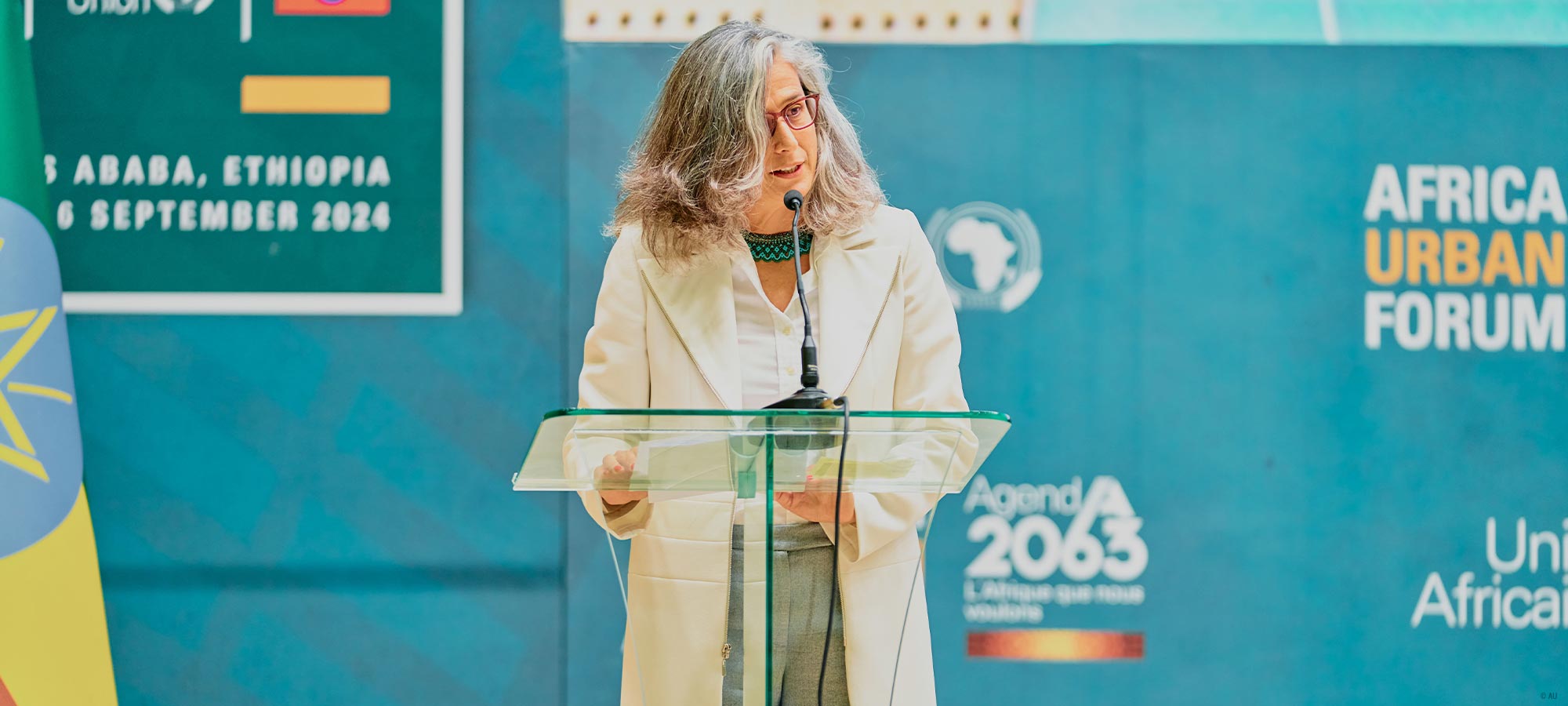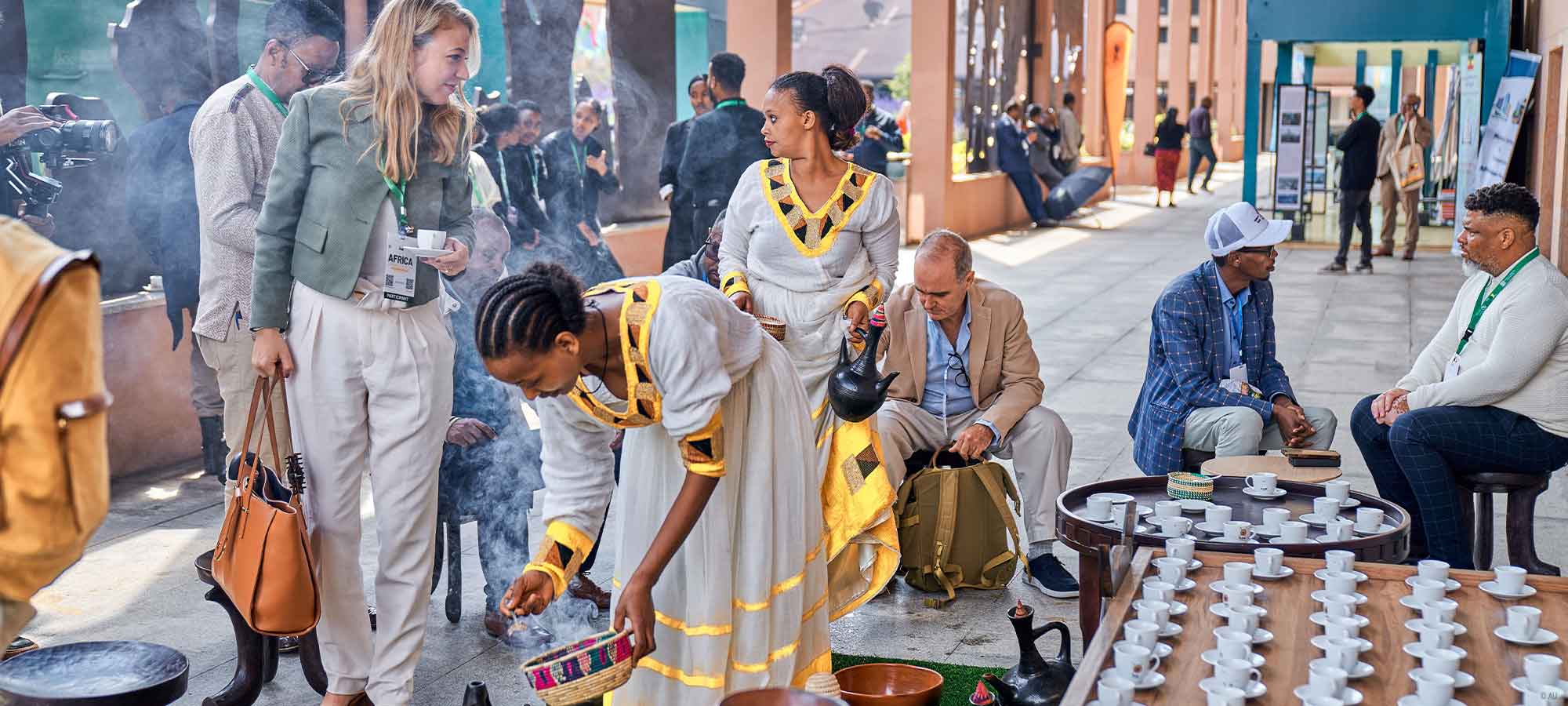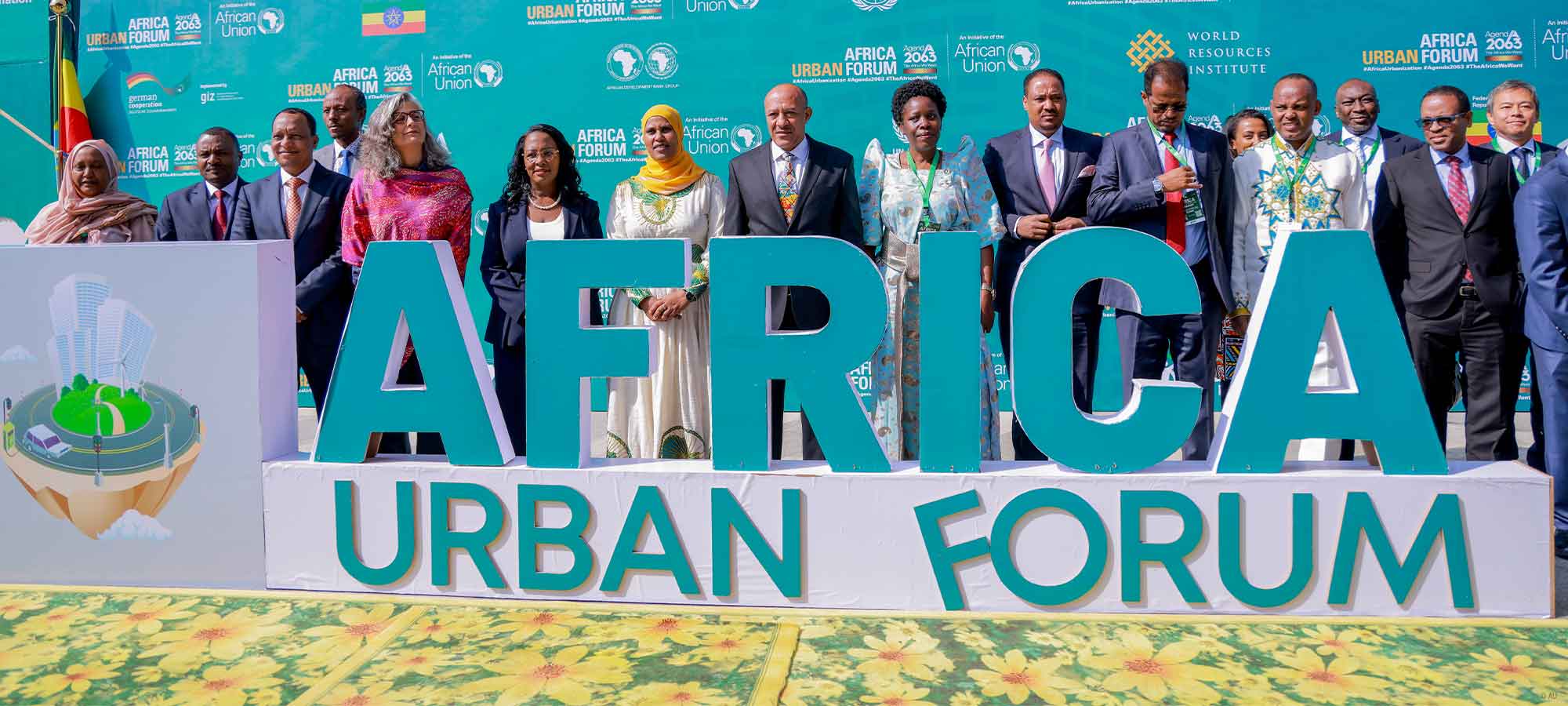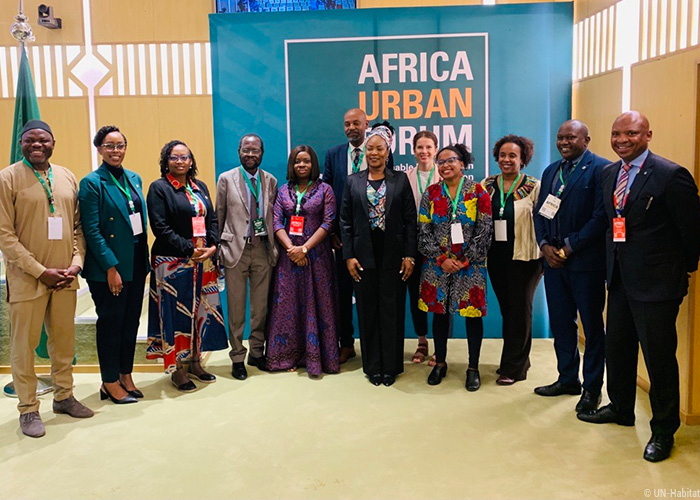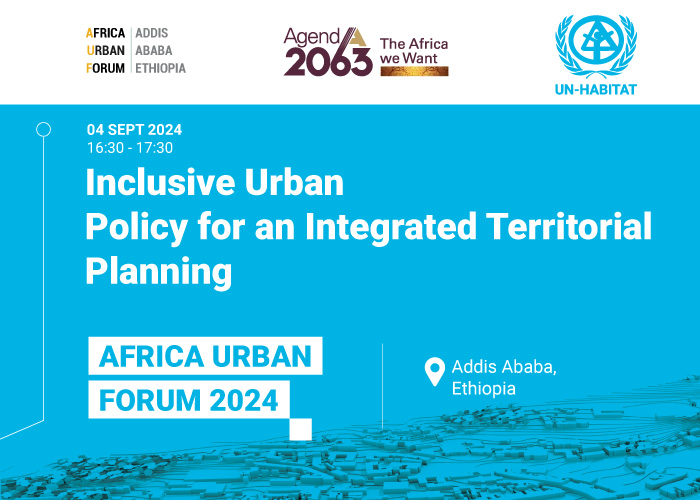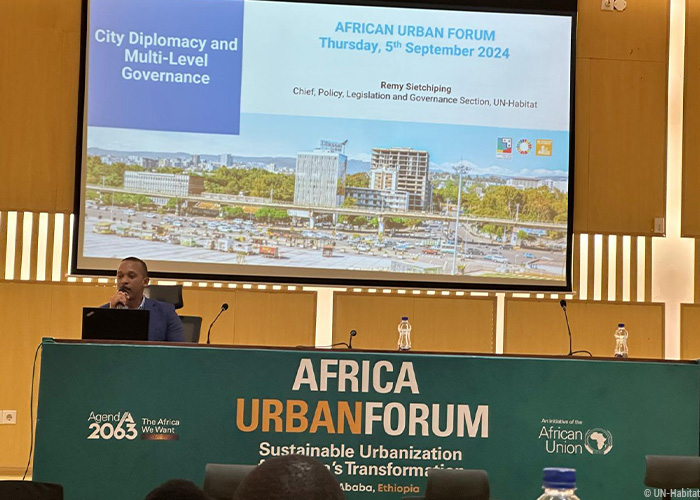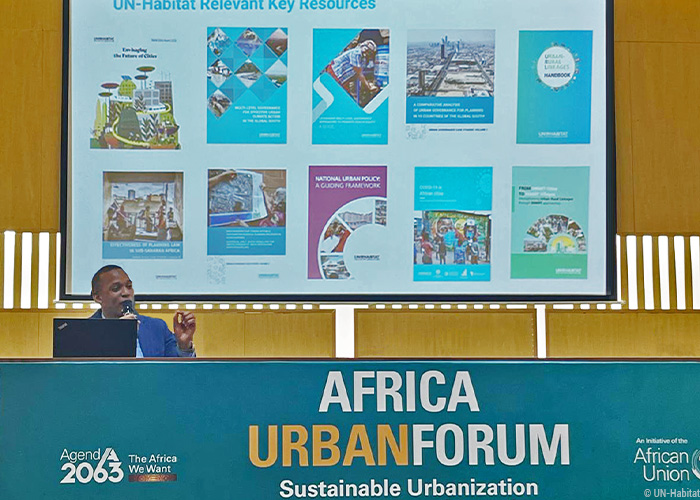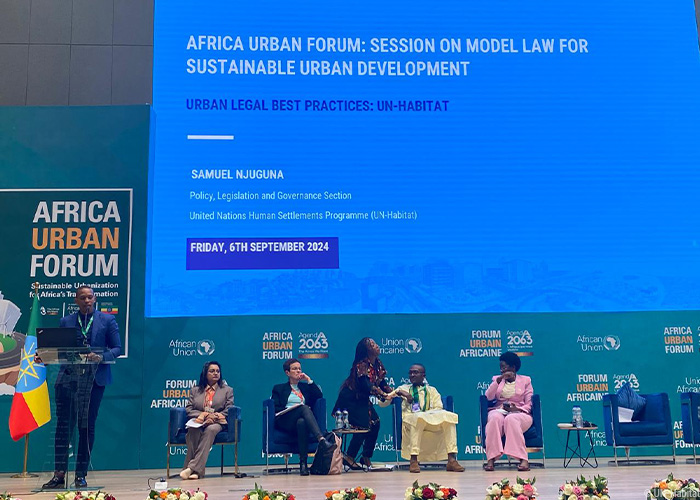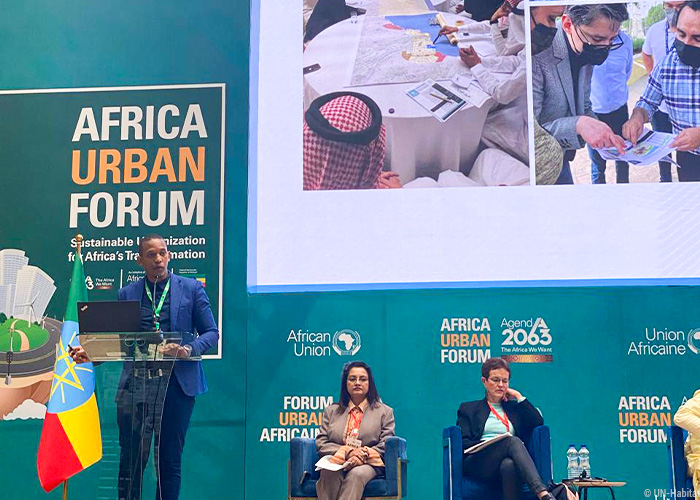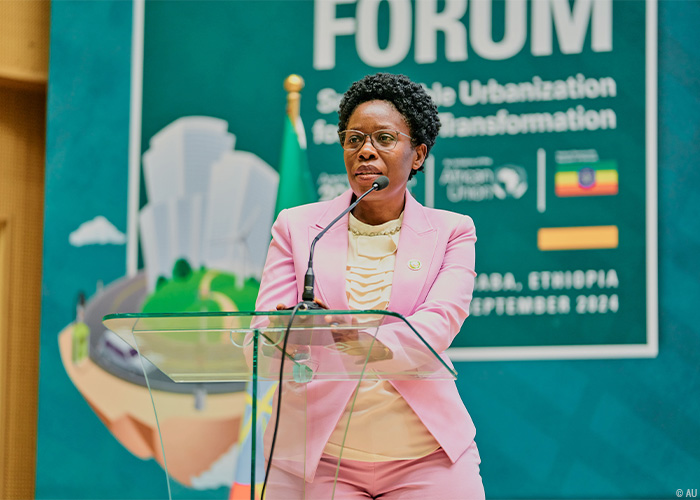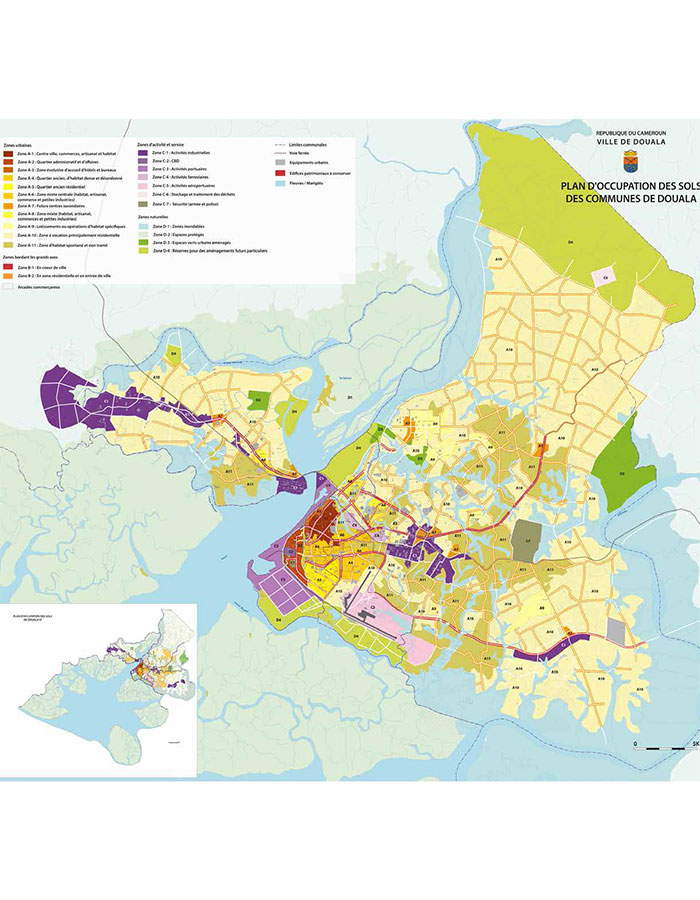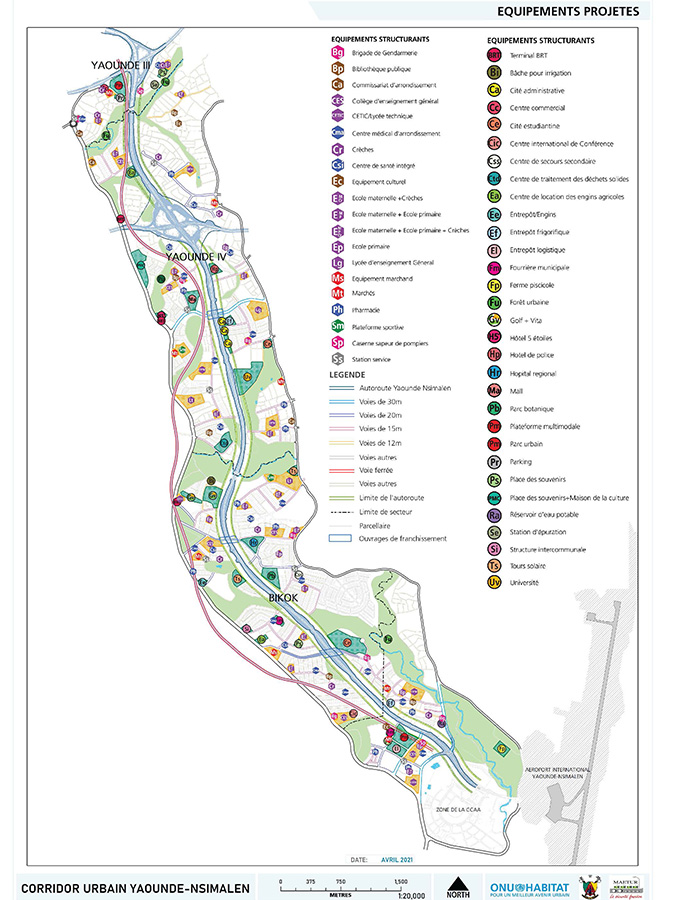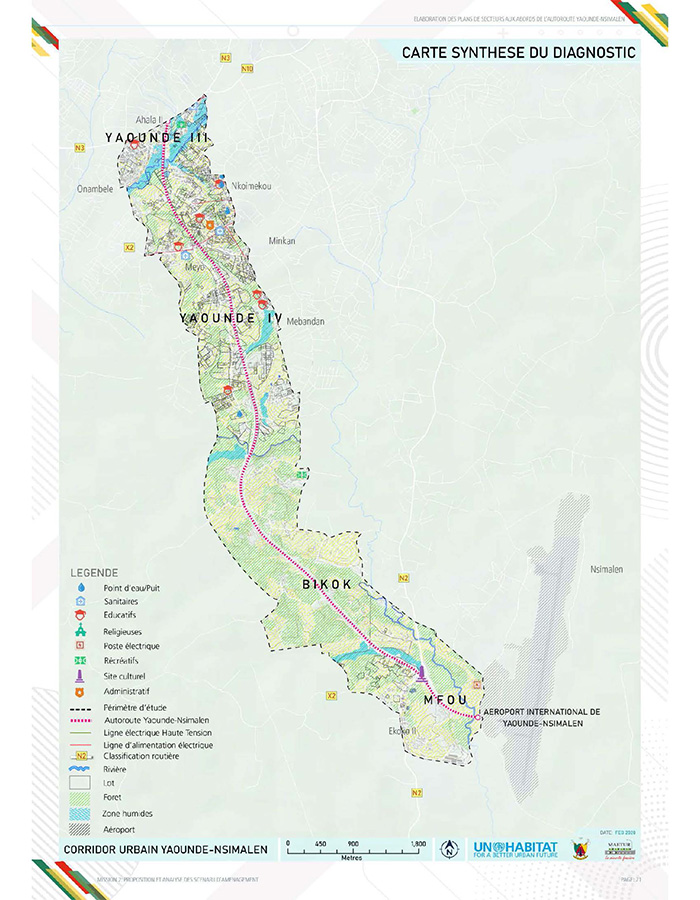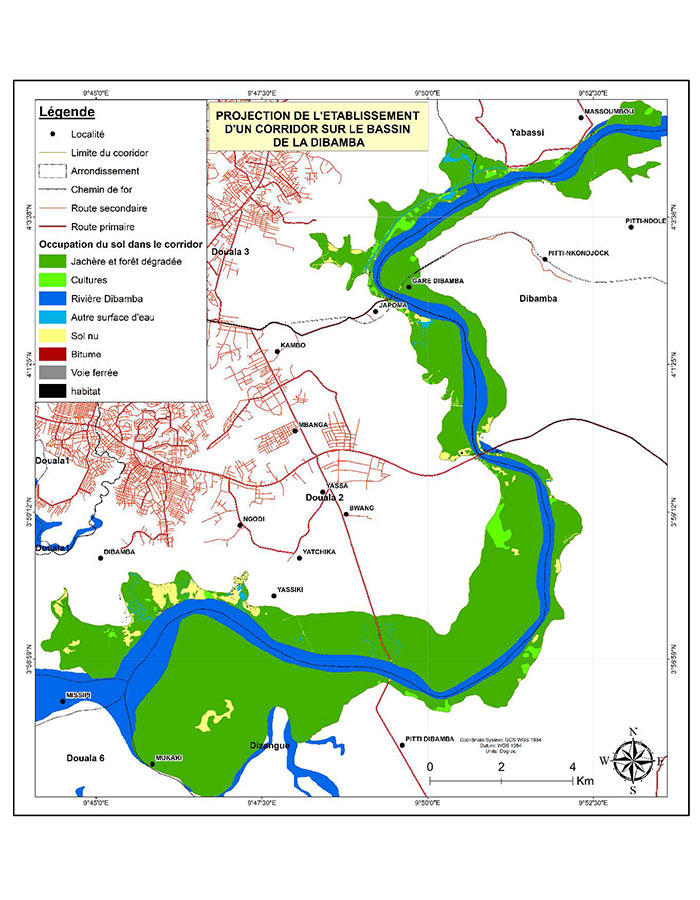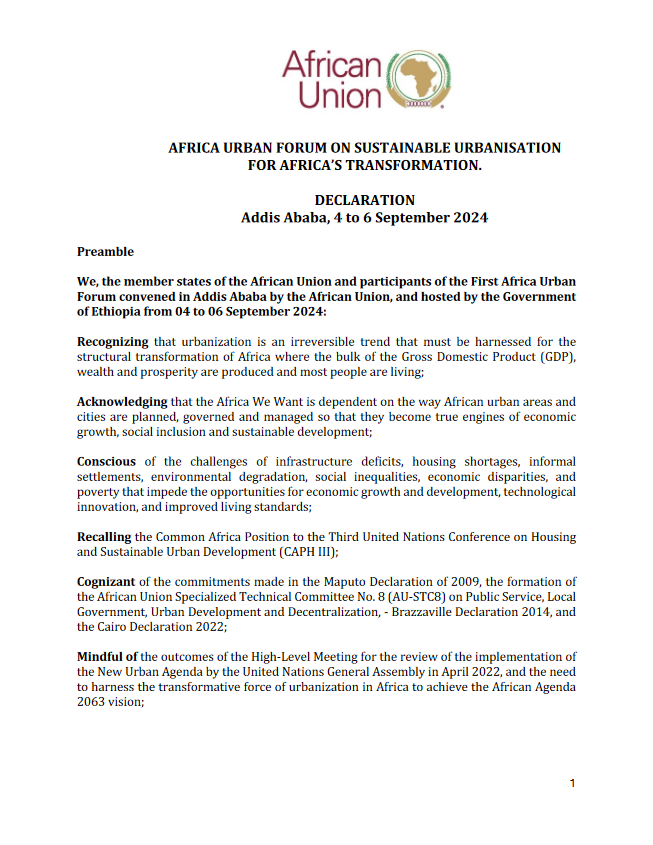4th–6th September 2024 | Addis Ababa, Ethiopia
Urbanization remains a megatrend that impacts all aspects of development in the African continent. Furthermore, the continent’s average urbanization rate of 3.5 per cent annually for the last twenty years, is expected to continue until 2050. Urbanization comes with several challenges, and equally multiple opportunities to work towards achieving inclusive and sustainable urban development. It is against this backdrop that the inaugural Africa Urban Forum (AUF) was fittingly held in Addis Ababa, Ethiopia from 4th to 6th September 2024.
The Forum’s theme, “Sustainable Urbanization for Africa’s Transformation: Agenda 2063.” was designed to unpack what sustainable urbanization means for the African continent while exploring the inherent challenges and identifying how to harness urbanization opportunities to achieve Agenda 2063.
The main theme was then anchored on two sub-themes, both crucial for achieving sustainable urban development in Africa.
These are:
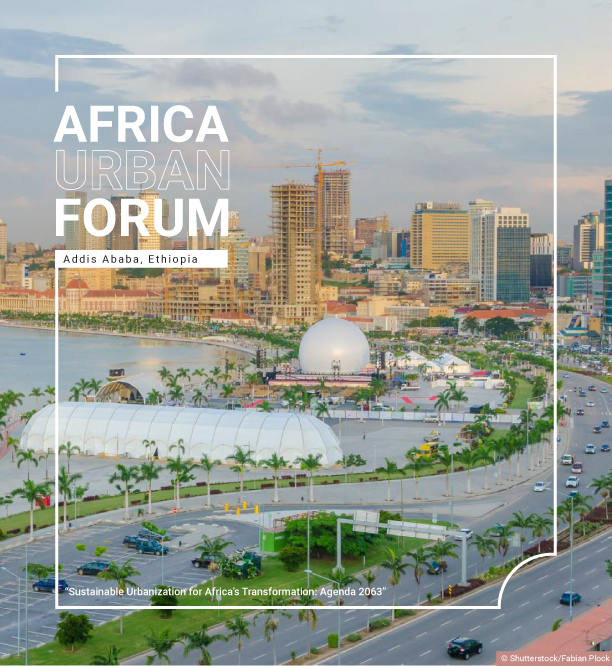

The three-day forum convened more than 2,300 participants, including high-level government representatives, policymakers, academics, urban planners, community leaders and other stakeholders from across Africa and beyond. The forum was a platform for these varied stakeholders to exchange experiences, inspiring practices, ideas, and potential collaboration on initiatives that promote sustainable urban development.
Policy, legislation and governance highlights at AUF.
As key drivers of positive transformation in the urban development journey, Policy, Legislation and Governance, featured extensively in the main plenary sessions, side events as well as the numerous bilateral sessions during the 3-day forum.
Here are some examples of events held with a policy, legislative and governance nexus. These events were co-organized or participated by UN-Habitat’s Policy, Legislation and Governance Section.

Side Events
1. Inclusive urban policy for integrated territorial planning (Wednesday 4th September 2024).
This session highlighted the importance of inclusive urban policy for integrated territorial planning in the development of sustainable, equitable, and resilient cities in Africa. The session drew on global and regional datasets and trends, as well as practical experiences from selected countries (Djibouti, Liberia, the Gambia, and Lesotho) to illustrate how urban policy has addressed the diverse needs of people across various socioeconomic backgrounds, while promoting cohesive development and spatial integration of urban, peri-urban, and rural areas.
The session also provided an opportunity to discuss opportunities and actions going forward, to further elevate the important role inclusive urban policies play in achieving territorial development.

2. Enabling city diplomacy in Africa. How to increase the agency of subnational stakeholders in international policy, cooperation and collaboration related to climate (Thursday 5th September 2024)
This session showcased the role of mayors and local decision-makers from Kenya, Liberia, Ethiopia and South Africa in international relations to support the implementation of international policies such as the Paris Climate Agreement and the current debate on financing African cities.
UN-Habitat shared eminent insights on the role of city diplomacy and multilevel governance to support climate action.

3. AU Model Law on Sustainable Urban Development (Friday 6th September)
This session attracted 80-100 participants ranging from AU Ministers, policy makers and officials responsible for Housing, Urban Development and Human Settlements; Regional Economic Communities; Partners of the Africa Urban Forum; Private sector and NGO stakeholders.
The session provided a multi-stakeholder platform that:
A key takeaway from the session was that it is essential to review and assess the impact of existing laws, policies and practices and to promote appropriate legislation and policies to ensure equal opportunities and reduce inequalities of outcome. Progress towards this can be achieved through review of the impact of existing laws, policies and practices. This will help to promote appropriate legislation and policies to ensure equal opportunities and reduce inequalities of outcome.

4. Transport Corridors Development in Africa:
UN-Habitat also participated in this session organized by the European Commission and Cities Alliance on Transport Corridors Development. During the session, UN-Habitat presented on the ongoing corridor development projects, progress made, and results achieved in its technical support to Cameroon in corridor development projects.
These are:

Bilateral Consultations
Bilateral sessions remain crucial engagement platforms to directly exchange knowledge and experiences, review progress of ongoing collaborative initiatives and also forge new partnerships.
UN-Habitat’s PLGS also participated in the NUP session in Portuguese-speaking countries in Africa (e.g. Mozambique, Angola and Guinea Bissau). The session provided an opportunity to share global experiences and tools on national urban policy. A key outcome was the planned support to support Guinea-Bissau during launch of its national urban policy project.
AUF Declaration
The three-day forum, full of productive engagements and deliberations culminated in a Declaration that summarizes the commitments participants will advance in their contexts. The Declaration also significantly featured policy, legislation and governance, demonstrating the crucial role these themes play in effectively guiding sustainable urban development efforts.
The AUF Declaration also well fits in with the recently revamped UN-Habitat multi-level urban forums for policy-practice initiative. In this initiative, the outcomes from a regional forum, such as the Declaration, will inform the upcoming World Urban Forum to be held in Cairo, Egypt, in November 2024.
At the end of the Forum, it was clear that, “It has never been more important for new multi-level governance arrangements and continent-wide programmes to harness the current urbanization phase to ensure economic diversification, reduced cost-of-service delivery and climate resilient development”[1]. Therefore, a rethink of the type of socially inclusive, transformative policy, legislative and governance processes could shape the future of the African cities we all want.

Just concluded a session on the AU Model Law! Honored to share @UNHABITAT legal best practices, tools, and methodologies with 80+ participants.
— UN-Habitat, Policy, Legislation & Governance (@UNHABITAT_PLGS) September 6, 2024
Exciting discussions on urban law and policy! #AUModelLaw #UrbanDevelopment #UNHabitat@UNHABITAT_ROAF @IFRI_ @Afrique_IFRI @UCLGAfrica https://t.co/x2HoXB8MSi pic.twitter.com/G6dvynRz48
As the first ever #AfricaUrbanForum2024 came to a close, @UNHABITAT director @AnacludiaRossb1 had a bilateral with the #EgyptianDelegation who will be hosting the 12th session of the #WorldUrbanForum @WUF_UNHabitat in November this year.
— UN-Habitat Africa (@UNHABITAT_ROAF) September 7, 2024
More on #WUF: https://t.co/g5O45HCZOw pic.twitter.com/2eKO5pnoW7
It’s a wrap for the first #AUF in Ethiopia! A huge thank you to @UNHABITAT_ROAF and @UNHabitat_ETH for their contributions to our successful engagement. It was a pleasure to meet and interact with colleagues from the land of our origins. pic.twitter.com/n7dCkTw8UM
— Anacláudia Rossbach (@AnacludiaRossb1) September 7, 2024


